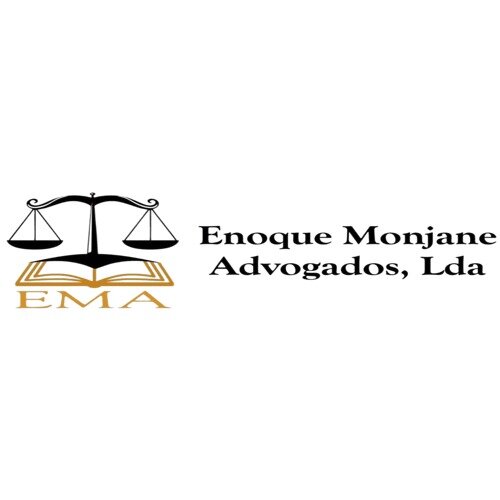Best Environmental Law & Compliance Lawyers in Maputo
Share your needs with us, get contacted by law firms.
Free. Takes 2 min.
List of the best lawyers in Maputo, Mozambique
About Environment Law in Maputo, Mozambique
Environment law in Maputo, Mozambique, is part of the country's broader legal framework aimed at protecting the environment and promoting sustainable development. The government of Mozambique has taken significant steps to address environmental issues, emphasizing conservation, biodiversity, and sustainable use of natural resources. In Maputo, the capital and largest city, environmental concerns include urban pollution, waste management, and the conservation of coastal ecosystems.
Why You May Need a Lawyer
There are several situations where you might require the expertise of an environmental lawyer in Maputo:
- Regulatory Compliance: Businesses may need guidance to comply with environmental regulations and avoid fines or legal action.
- Land Use and Zoning: Property development often requires careful navigation of land use laws to ensure environmental sustainability.
- Pollution and Waste Disposal: Individuals and companies might face legal issues related to pollution or improper waste management.
- Environmental Impact Assessments: Legal advice may be necessary when conducting mandatory environmental impact assessments for new projects.
- Conservation Efforts: Organizations involved in conservation efforts may need legal support to navigate laws protecting biodiversity.
Local Laws Overview
The environmental legal landscape in Maputo is characterized by several key pieces of legislation and regulations:
- Environmental Law (Law No. 20/97): This is the principal framework for environmental protection in Mozambique, setting out the rights and obligations for the protection and sustainable use of the environment.
- National Environmental Policy (Resolution No. 5/95): Aims to manage and utilize natural resources sustainably.
- Law of Land (Law No. 19/97): Governs land use and ownership, integrating environmental considerations.
- Regulations on Environmental Impact Assessment (Decree No. 45/2004): Mandates assessments for certain projects to identify and mitigate negative environmental impacts.
- Forest and Wildlife Law (Law No. 10/99): Focuses on the conservation and sustainable use of forests and wildlife resources.
Frequently Asked Questions
What is the main environmental legislation in Mozambique?
The principal environmental legislation is the Environmental Law (Law No. 20/97), which provides the framework for environmental protection and sustainable use of resources.
Do I need an Environmental Impact Assessment for my project?
Projects that are likely to have significant impacts on the environment typically require an Environmental Impact Assessment, as outlined in Decree No. 45/2004.
How can businesses ensure compliance with environmental regulations?
Businesses can ensure compliance by consulting with environmental lawyers, conducting regular audits, and staying informed about updates to environmental laws and regulations.
What are the penalties for non-compliance with environmental laws?
Penalties can include fines, suspension of business operations, and legal proceedings. The specific penalties depend on the nature and severity of the violation.
How are land use and zoning issues handled in Maputo?
Land use and zoning are regulated by the Law of Land (Law No. 19/97), which integrates environmental considerations to guide sustainable land development.
Who is responsible for waste management in Maputo?
In Maputo, waste management is the responsibility of the municipal government, but businesses and individuals are required to adhere to specific waste disposal regulations.
What role does the government play in conservation efforts?
The government, through various ministries and agencies, oversees conservation efforts, enforces relevant laws, and collaborates with NGOs and local communities.
Can individuals participate in public decision-making on environmental issues?
Yes, the public can participate in certain environmental decision-making processes, especially during Environmental Impact Assessment public consultations.
Are there any international environmental agreements Mozambique is part of?
Mozambique is a signatory to several international environmental agreements, including the Convention on Biological Diversity and the Paris Agreement on climate change.
How can I report environmental violations in Maputo?
Environmental violations can be reported to the Ministry for the Coordination of Environmental Affairs or local environmental protection agencies in Maputo.
Additional Resources
Several resources and organizations can provide further assistance:
- Ministry for the Coordination of Environmental Affairs (MICOA): The principal governmental body for environmental regulation and policy implementation.
- Centro Terra Viva: A Mozambican environmental organization advocating for nature conservation and sustainable development.
- Legal Aid Services: Some universities and non-profit organizations offer legal aid services for environmental issues.
Next Steps
If you need legal assistance with an environmental issue:
- Consult a Qualified Lawyer: Seek professionals specializing in environmental law for in-depth legal advice tailored to your situation.
- Gather Documentation: Collect all relevant documents and information to support your case or inquiry.
- Stay Informed: Keep abreast of legal changes through local news or by joining relevant organizations.
- Explore Mediation: In some cases, mediation can be an effective and less adversarial way to resolve disputes.
Taking these steps will ensure you are well-equipped to address any environmental legal challenges in Maputo, Mozambique.
Lawzana helps you find the best lawyers and law firms in Maputo through a curated and pre-screened list of qualified legal professionals. Our platform offers rankings and detailed profiles of attorneys and law firms, allowing you to compare based on practice areas, including Environmental Law & Compliance, experience, and client feedback.
Each profile includes a description of the firm's areas of practice, client reviews, team members and partners, year of establishment, spoken languages, office locations, contact information, social media presence, and any published articles or resources. Most firms on our platform speak English and are experienced in both local and international legal matters.
Get a quote from top-rated law firms in Maputo, Mozambique — quickly, securely, and without unnecessary hassle.
Disclaimer:
The information provided on this page is for general informational purposes only and does not constitute legal advice. While we strive to ensure the accuracy and relevance of the content, legal information may change over time, and interpretations of the law can vary. You should always consult with a qualified legal professional for advice specific to your situation.
We disclaim all liability for actions taken or not taken based on the content of this page. If you believe any information is incorrect or outdated, please contact us, and we will review and update it where appropriate.
















